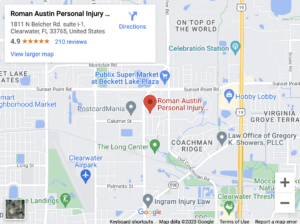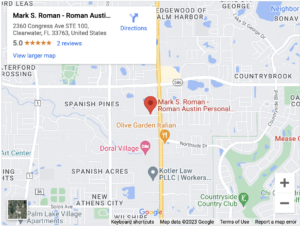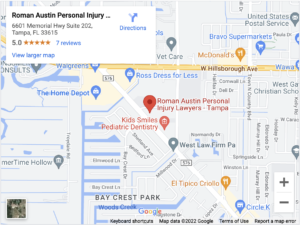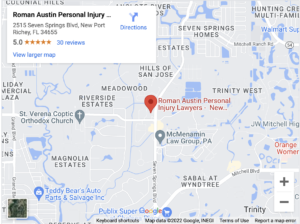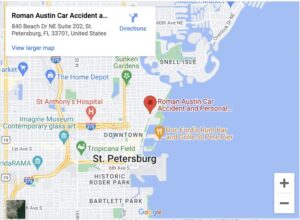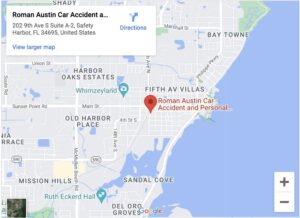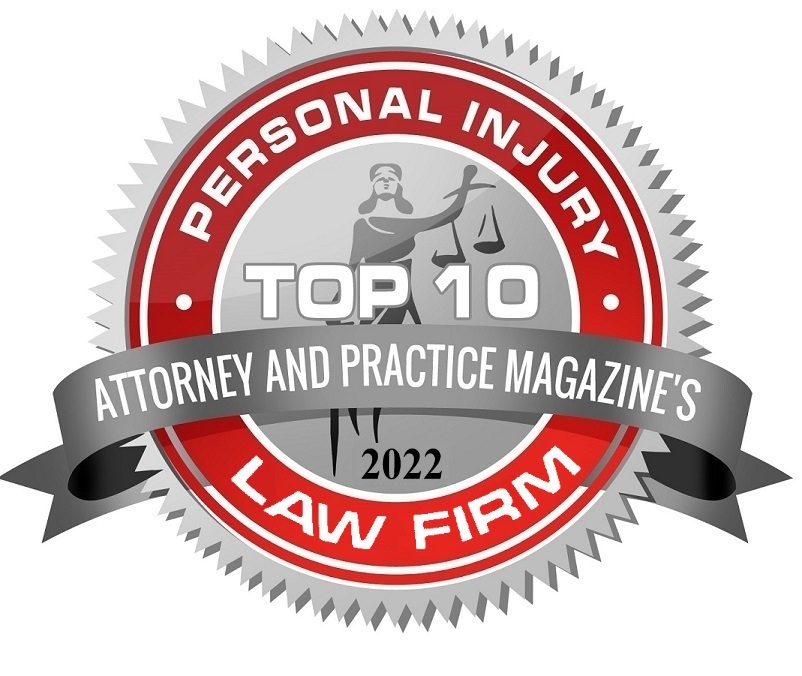
If you were injured because of another party’s negligence or wrongdoing, you can seek compensation for your injuries and damages under Florida personal injury laws. Motor vehicle accidents, slip and fall accidents, and construction accidents are just a few of the examples of situations that can lead to a personal injury claim.
Victims injured in an accident can seek compensation for their medical expenses, loss of income, pain, suffering, and other damages. After your injury, there are several phases of your personal injury case. Understanding each of those phases can help you prepare to file a personal injury lawsuit.
Steps in Filing a Personal Injury Lawsuit

The phases of a personal injury case include:
Reporting the Accident
You need to report the accident or injury immediately. Calling 911 is the quickest and easiest way to report the crash and request help for traffic accidents.
For a slip and fall accidents and other premises liability cases, report the accident to the property owner as soon as possible. If the owner is not available, report the accident to a manager, supervisor, or someone in charge of the premises.
Construction accidents and workplace accidents need to be reported to the employer, property owner, and other individuals in charge of the property. You may also need to file a workers’ compensation claim.
If you are unsure what reports need to be filed, you can check with our personal injury attorneys in Clearwater. A lawyer can handle filing many claims for you to ensure all claims are filed correctly to protect your legal rights.
Make sure that you receive copies of all accident and injury reports for your records. If it is safe to do so and your injuries allow, try to take photographs of the accident scene and make a video of the accident scene. Ask eyewitnesses for their names and contact information.
Seeking Medical Treatment for Injuries
Some individuals might not experience injury symptoms until a few hours or days after an accident. As soon as possible, see a doctor to diagnose and document your injuries. Delays in medical care could raise questions about whether the accident caused your injuries.
When you see a doctor, make sure to tell the doctor that you were involved in an accident. Tell the doctor each symptom you experience, even if you do not think the symptom is important or the pain is minor. Your medical records will become vital evidence in a personal injury lawsuit.
Following your doctor’s treatment plan is also vital for your personal injury lawsuit. You do not want to give the insurance company or a defense attorney a reason to argue that your actions contributed to the severity of your injuries or condition.
Deciding Whether You Want to Hire a Personal Injury Lawyer
Handling a personal injury claim without a lawyer can be challenging. Insurance companies have unlimited resources and teams of attorneys, adjusters, and investigators to protect their best interests. Hiring a personal injury lawyer can be the best step you take to protect your right to fair and just compensation.
A personal injury lawyer evaluates your claim and your damages. The attorney advises you of your legal rights and handles all phases of your personal injury case, including the investigation phase.
Accident Investigation and Gathering Evidence
Knowing that someone caused your injury is not sufficient evidence to recover compensation for injuries and damages. Your attorney investigates the cause of your injury to gather evidence proving the other party was at fault. You must prove the other party caused your injury and you sustained damages before you can recover money for your claim.
Depending on the complexity of your case, an investigation could take months to complete. It could require hiring investigators, accident reconstructionists, and other experts to help gather evidence proving liability. In some cases, medical experts and economists may be required to prove the extent of your damages.
A lawyer has the resources, skills, time, and experience to investigate an accident to gather the evidence needed to build a strong case against the person responsible for causing your injury.
Filing Claims and Negotiating Settlements
During the investigation, your lawyer identifies each party liable for your claim. He also identifies every insurance policy that could provide coverage for your claim. Your lawyers file insurance claims and place parties on notice that you have a claim for damages.
Once you complete medical treatment for your injuries, your attorney prepares a demand for settlement. He sends demand settlement packages to each party liable for your injuries. The letter included with the package states the amount demanded to settle the personal injury claim.
Settlement negotiations could take several months to reach a settlement as the parties go back and forth responding to offers. Once a settlement is reached, you will sign a settlement agreement. Settlement agreements are binding legal contracts.
Do not sign a settlement agreement until you complete medical treatment. You cannot be aware of the extent of your damages and the severity of your injuries until you complete treatment. You could have sustained a permanent impairment because of the accident, which increases the value of your personal injury claim.
Filing a Personal Injury Lawsuit
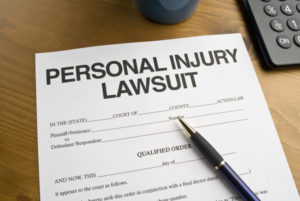
When an insurance company or other party refuses to negotiate a fair settlement for your injury claim, a personal injury lawsuit might be the only option to protect your best interests. Your lawyer prepares the lawsuit and files it with the court. The other party has a set amount of time to file a response to the lawsuit.
Florida’s statute of limitations sets the deadline for filing personal injury lawsuits. Because the deadlines could change based on the facts of your case, it is best to contact a lawyer to avoid missing the deadline. Missing the deadline means you give up your right to sue the party who caused your injury.
Going to Court
After the lawsuit is filed, your lawyer and the other party’s lawyer engage in discovery. The discovery phase of a lawsuit could last several months. Discovery involves collecting evidence and information from the other party that can be used during a trial.
Lawyers also file pre-trial motions to settle legal questions regarding evidence, witnesses, and matters of law. Attorneys may also continue to engage in settlement negotiations, including engaging in mediation to settle the claim.
If the case does not settle, the matter goes to trial. The injury victim presents evidence and witnesses first. The other party has the chance to respond by submitting evidence and witnesses.
The jury decides who to believe and what evidence is relevant to the decision. If the jury finds for the accident victim, it also calculates how much money the accident victim should receive as compensation for damages.
However, a verdict in your favor may not end the case. After a trial, the party who lost can file an appeal. An appeal goes to a higher court to review the case.
The higher court may affirm (agree) with the trial court’s decision, overturn the decision, or return the case to the trial court for another trial.
Call Our Florida Personal Injury Lawyers for a Free Consultation
If you have questions about an injury claim, contact our office at (727) 787-2500 to speak with a Florida personal injury attorney. At Roman Austin Personal Injury Lawyers we review your case, explain your legal rights, and answer your questions. Get the help you need to hold the party responsible for your pain and suffering accountable for their actions.

